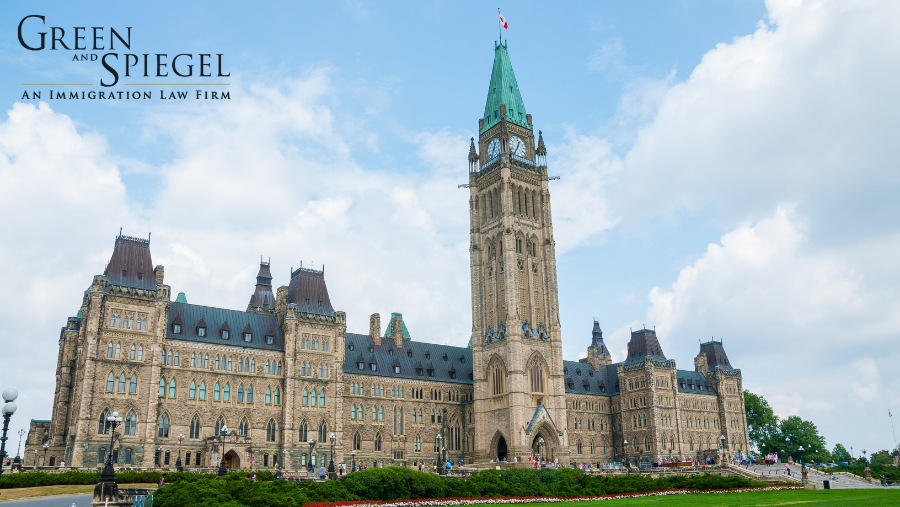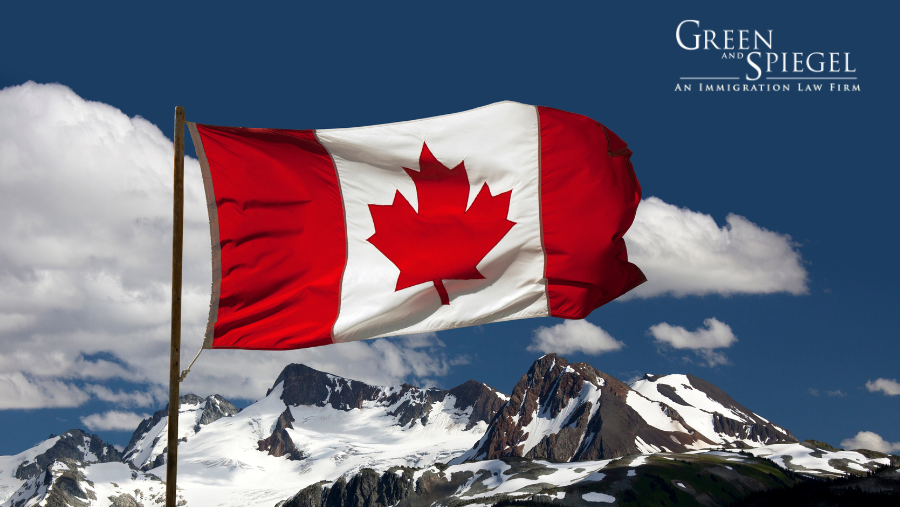Prince Harry, Duke of Sussex and Meghan, Duchess of Sussex recently announced that over the course of this year, they intend to divide their time between North America and the United Kingdom. Joining the more than 238 million international migrants living in a country in which they were not born.
Of course there are immigration considerations to think about any time cross border travel and movement is involved. What types of documents would be required? How long can they stay? What country of citizenship will they have?
Although he is the Duke of Sussex, Prince Harry is also a British Subject. Having been born in the UK, he possesses a British Passport. The Duchess of Sussex is an American citizen and has reportedly undergone an immigration process in the UK and waiting to meet the requirements to become a British citizen. Baby Archie, does not have a royal title and will grow up as a private citizen, has a claim to both British and American citizenship.
Incidentally, The Queen has no citizenship, as she is the embodiment of the state, which has the authority to bestow citizenship, she doesn’t require citizenship herself.
The Duke and Duchess do not require visas to enter Canada as visitors. They are both exempt from the requirement to obtain an electronic Travel Authorization (eTA) to fly to Canada. The Duchess is exempt as an American citizen while the Duke is exempt under sections 7.1(2) and (3) of the Immigration and Refugee Protection Regulations as a member of the (British) Royal Family.
When they travel to Canada as “visitors”, they would be generally authorized to remain here for up to 6 months. As visitors, they are not allowed to work or study.
If they want to work in Canada, then they will need work authorization. Given their intention to launch a new charitable entity, they may need work authorization to perform any hands-on work for the charity in Canada. To get a work permit, they may be able to utilize the CETA Free Trade Agreement, while the UK is still a part of the European Union. The CETA allows business visitors, investors, independent professionals and contractual service suppliers in select occupations to apply for work authorization.
Another work authorization option may be under the significant benefits (C10) category if it can be demonstrated that their entry into the Canadian labour market would have a significant cultural or economic benefit to Canada. An officer looks at the social and cultural benefit of authorizing entry to Canada for persons of international renown and whether their proposed benefit to Canada would be important or notable.
Work permits offer temporary residence status. If they decide that they love Canada and wish to relocate permanently, they can apply for permanent residence status. In general, through the Express Entry System as a Federal Skilled Worker. Given the Duke’s human capital factors including his age (35 years), education level, language skills and foreign work experience, it is estimated that he would score around 395 points in the Express Entry system. This takes into account the Duchess’s years of Canadian work experience while she was living and working in Toronto. Unfortunately, this score is not competitive for an invitation to apply at this time, given the most recent round of invitations were sent to candidates who had scores of 473 points or higher. The Duke would need to improve his score by obtaining Canadian work experience or Canadian education.
The Duchess could be eligible to apply for permanent residence under the self-employed category given her years of experience as an actress. This program allows people to immigrate to Canada if they have relevant experience in the cultural industry at a world-class level and is willing and able to be self-employed in Canada. The Duchess would qualify to apply in this category given her previous career in acting. She appeared on the show Suits, which filmed primarily in Toronto.
Once they become permanent residents of Canada, they must meet the residency obligation to maintain their status. This requires 730 days of physical presence within a 5 year period. Given their intention to divide their time between North America and Great Britain as well as their potential heavy travel schedule, it may be challenging to meet the residency requirement. If they are abroad while employed by a Canadian business or in the federal public administration or the public service of a province, each day spent outside Canada would count towards the residency obligation.
To become Canadian citizens, they must have 1095 days of physical presence in Canada in a 5 year period. Once they meet the residency criteria, they can apply for a grant of Canadian citizenship.
The most efficient way to live and work in Canada is to obtain Canadian citizenship through a special grant under s. 5(4) of the Citizenship Act in which the Minister may exercise discretion in granting Canadian citizenship to reward services of an exceptional value to Canada or in cases of special and unusual hardship. When a Canadian citizenship application is approved, they would need to take the Oath of Citizenship where they would be pledging allegiance to The Queen, the Duke’s grandmother.




